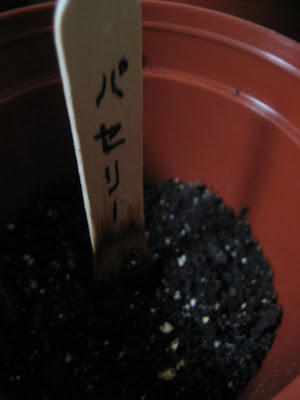Here's a classic. One of those situations when I realize teaching English in a foreign country isnt as easy as the welcome pack makes it seem. I just got home, and I'm writing this with a tall chu-hi fresh in my system.
First of all, I teach kids. Only children. Most the time there's no problem, they don't understand me, their parents don't understand me, I dont understand them, but playing games and making sure everyone takes the right bag home isnt too complicated.
Tonight, luckily, I was "team teaching" with a coworker. TT for short. It's what my company does with extra teachers. He comes, teaches half of my lessons for the day, we both learn new games, techniques, etc. Good times. I happen to be friends with this TT coworker, so even better.
It was an in-and-out operation. Two classes. Two hours of work. I teach the first class, six girls, ages 3-5. Sweet, fun, shy, not too genki. He teaches the next class. Simple.
Well, during my class, as I was doing some game with flashcards, maybe having the kids repeat "triangle, TRIANGLE, square, SQUARE," or whatever, one little girl sitting next to my TT partner, rolls back a little and bumps her head on the short table behind her. No big deal. A simple, "daijabou?" and we've all forgotten about it. Until my TT coworker remembers a note in the school's communication book saying one of the students is possibly a hemophiliac and can't hit her head or mouth.
You need to understand, these notes in the communication book do not come from someone fluent in English. They're usually vague and confusing, and sometimes don't make sense at all.
I ask the TTer to go check who exactly has the supposed "hemophilia." As I go through the rest of the shapes vocabulary he signals back that it is in fact
her. The one who bumped her head.
The note reads. "She suffers from kawasaki-byo. She can't run and play games. If she hit her head or mouth it is problem." Then someone highlighted "kawasaki byo" and wrote hemophilia beside it.
No big deal. I hand off the flashcards and go try to call the usual Japanese teacher to see what I should do. I'll ask her if it's a big deal, or if I can keep going as usual.
I go to call the Japanese teacher and no answer.
TTer and I keep going on the lesson. I get all the kids to get their crayons out and sit at the little tables. Suddenly, four year-old "hemophiliac" girls starts nodding off. She falls asleep on her paper. Unusual behavior for her. Panic sets in and I go to call our head offices, who can then call the girls mom. We can find out what's up.
While I'm on the phone with the head office the little girl is totally unresponsive in the TTer's arms. A few flinches. He can't wake her up. He's holding her the way you hold someone who just got shot. I've never seen him this upset. Both of are visibly shaking as we realize this kids life rests in our hands. I tell the head office, if you can't get a hold of the parents call an effin' ambulance. My TT partner is panicking, he's saying, "call an ambulance."
A girl who may or may not have some sort of sickness knocks her head and then can't wake up. We're worried.
Finally, as the TTer tries to get her eyes open, to see if they're rolled back or not, she starts crying. The head office calls me back and says the father is on his way.
The father comes and we can't really communicate anything, except she's sleepy and hit her head and we are "kowai" (scare). He seems totally unphased and not worried at all. He stands outside the door the whole time and finally the TTer picks the girl up and gives her to him. They go home. TT and I are left shaking not knowing what just happened.
Did we over-react? Did the father under-react? What the hell is going on? Why aren't we more prepared for this?
Coming home and Googling "kawasaki disease" has led me to realize nothing that we thought was happening was. Just a sleepy four year-old.
 Well, the garden has moved from fridge-top to table-top. I was worried it wasnt getting enough light. Also, I couldnt really see up there; Motto was always announcing to me the something sprouted, and I'd be jumping up and down, "Let me see! Let me see!"
Well, the garden has moved from fridge-top to table-top. I was worried it wasnt getting enough light. Also, I couldnt really see up there; Motto was always announcing to me the something sprouted, and I'd be jumping up and down, "Let me see! Let me see!" The radish is growing pretty fast. I have named him DJ, after the blogger. Because he asked. And he's the tallest. He's got some weird brown spots. It looks likes someone tried to light him on fire.
The radish is growing pretty fast. I have named him DJ, after the blogger. Because he asked. And he's the tallest. He's got some weird brown spots. It looks likes someone tried to light him on fire. A few carrots have sprouted and I named them Switchsky, because I remember she grew some real carrots once.
A few carrots have sprouted and I named them Switchsky, because I remember she grew some real carrots once. Two spring onions have started growing, in two different pots. I have a feeling I only planted two seeds. Obviously that wont be enough to top anyone's Ramen. I will name the one on the left D and the one on the right Olivia.
Two spring onions have started growing, in two different pots. I have a feeling I only planted two seeds. Obviously that wont be enough to top anyone's Ramen. I will name the one on the left D and the one on the right Olivia. The parsley is the only plant that hasn't sprouted yet. Maybe it was too dark on that side of the fridge. So, this patch of dirt is Steve.
The parsley is the only plant that hasn't sprouted yet. Maybe it was too dark on that side of the fridge. So, this patch of dirt is Steve.









